
Vol. XXII, No. 12, December 2022
- Editor's corner
- The role of alcohol at location-based entertainment
- Dave & Buster's Q3 2022 results
- Death by a thousand cuts
- Should location-based entertainment prioritize sustainability?
- What do people find meaningful and fulfilling?
- Why the birth rate is declining
- Two different eatertainment venues
- Why market and financial feasibility studies need to be different today
- Time saved, or time well spent?
- Older Gen Z trending vegetarian, vegan, and flexitarian
Why the birth rate is declining
Many factors are contributing to the long-term decline in the U.S. birth rate, among them fears about climate change, increasing cost of living, and other societal issues.
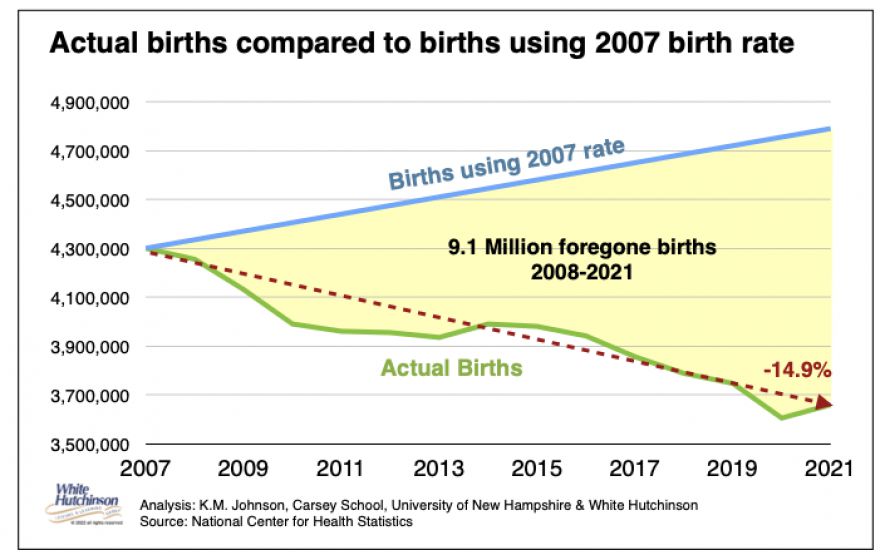
In July, the Harris Poll surveyed over a thousand U.S. adults aged 18+ to determine the factors contributing to the decline. The poll found that 20% of Gen Z and 30% of Millennials don't want to have a child in the future (biologically or through adoption.
Those adults who do not have children and do not want to have a child in the future sighted these factors influencing their decision.
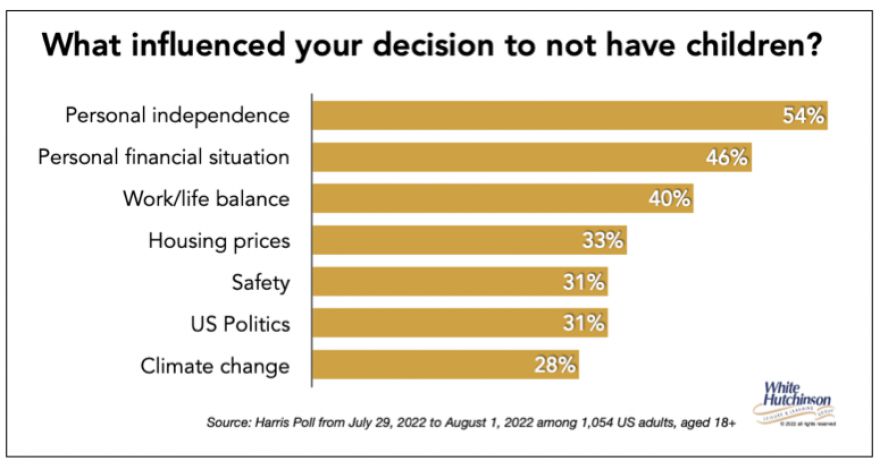
YPulse found an even higher percentage of young adults that don't want to have children in their survey in August of this year. 37% of adults younger than age 40 don't want to have children.
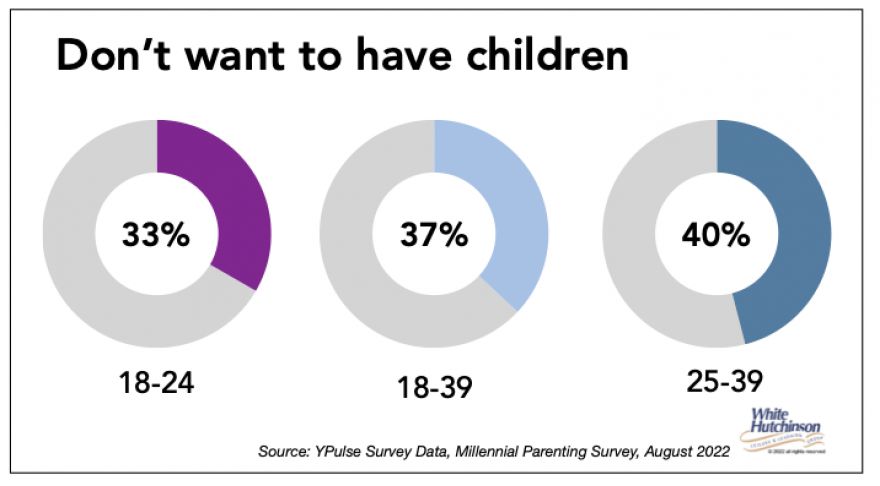
The YPulse survey found that 25% of younger adults say that people should stop having children because of the harm it causes to other people, animals, or the environment. 42% agree that people should stop having children because their children's quality of life will be poor. And nearly six in ten younger adults (58%) are concerned about overpopulation on the planet.
A November ABC News/Ipsos Poll of American 18- to 45-year-olds finds that climate change, particularly the impact of climate change on the next generation, is a concern to a majority of this age group. Three-quarters (75%) are concerned about the impact climate change will have on future generations, 61% are concerned about the impact on their local community, and 55% are concerned about the impact on them personally.
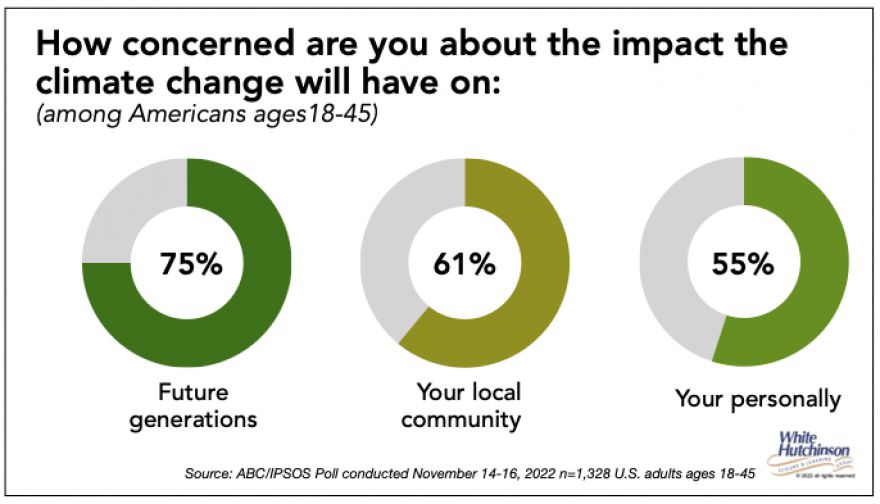
Almost six in ten (58%) are very or somewhat worried about the risk to children's physical health caused by climate change, and 42% are worried about bring a child into the world because of climate change
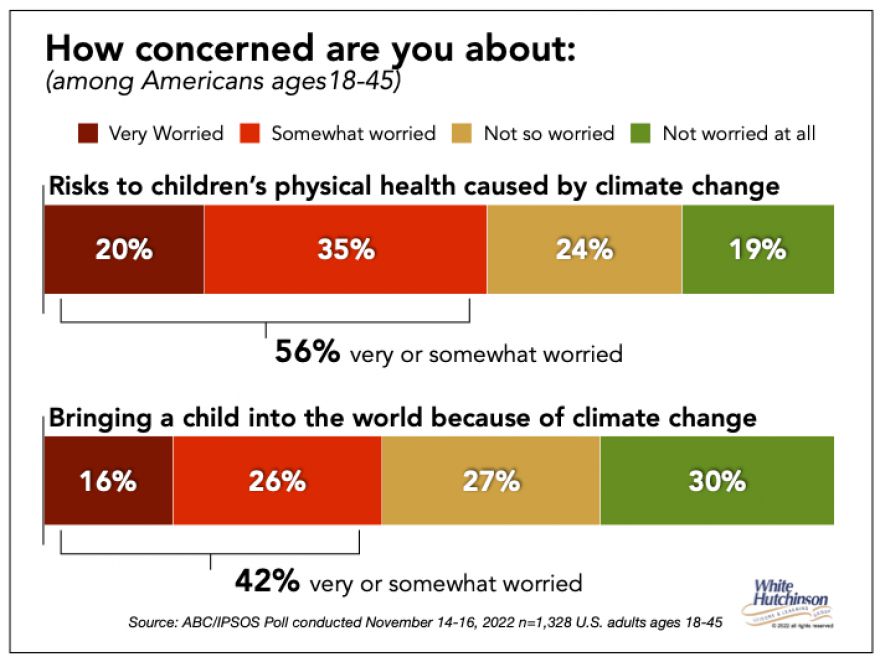
As a result, a quarter of younger Americans say climate change has impacted their decision to have children.
Here are the ages at which people decide to be childless.
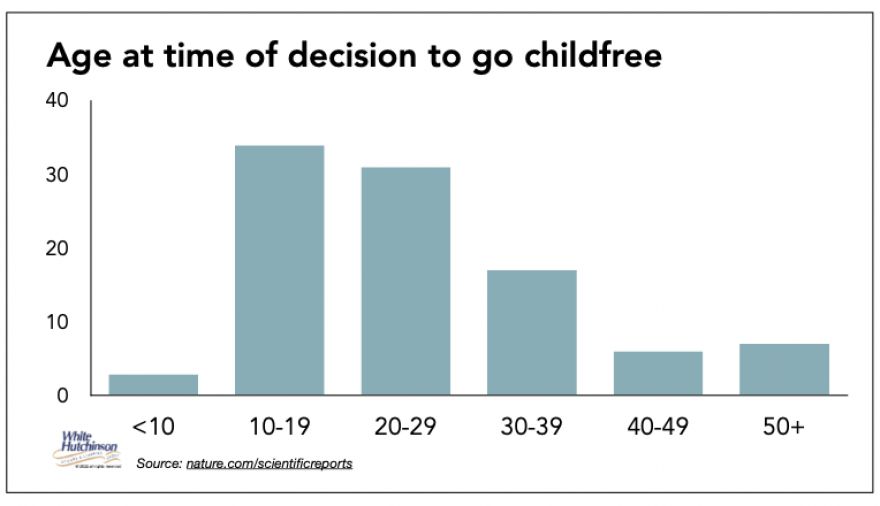
These surveys strongly suggest the birthrate will continue to decline into the future.
Vol. XXII, No. 12, December 2022
- Editor's corner
- The role of alcohol at location-based entertainment
- Dave & Buster's Q3 2022 results
- Death by a thousand cuts
- Should location-based entertainment prioritize sustainability?
- What do people find meaningful and fulfilling?
- Why the birth rate is declining
- Two different eatertainment venues
- Why market and financial feasibility studies need to be different today
- Time saved, or time well spent?
- Older Gen Z trending vegetarian, vegan, and flexitarian


